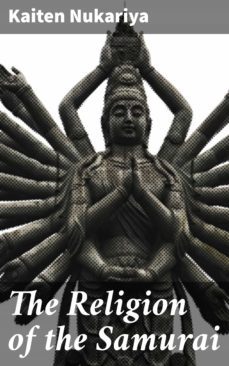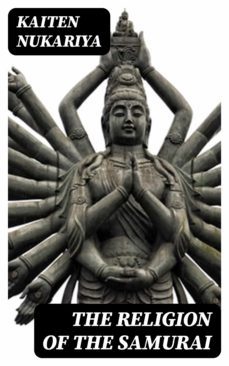Imprescindibles
Más vendidos Libros más leídos eBooks más leídos Todos los libros Todos los libros Autores destacados Series y sagas
Recomendados Libros recomendados Autores destacados Libros que inspiran Vidas con historia LGTBIQ+ English books
Ficción
Literatura Contemporánea Estudios literarios Clásicos Cuentos Poesía Teatro Libros de bolsillo Sagas literarias
Géneros literarios Novela romántica y erótica Novela negra Novela histórica Narrativa fantástica Novela de ciencia ficción Novela de terror Narrativa de humor Narrativa de viajes
No Ficción
Ciencias y tecnología Biología Ciencias Ciencias naturales Divulgación científica Informática Ingeniería Matemáticas Medicina Salud y dietas Formación Idiomas Estilo de vida Libros de Cocina Guías de viaje Narrativa de viajes Deportes Libros de Juegos Manualidades
Humanidades Autoayuda y espiritualidad Ciencias humanas Derecho Economía y Empresa Psicología y Pedagogía Filosofía Sociología Filología Biblioteconomía Estudios filológicos Estudios lingüísticos Estudios literarios Historia y crítica de la Literatura
Infantil
Juvenil
#Jóvenes lectores Narrativa juvenil Clásicos adaptados Libros Wattpad Libros Booktok Libros de influencers Libros de Youtubers Libros Spicy Juveniles Libros LGTBIQ+ Temas sociales Libros ciencia ficción Libros de acción y aventura Cómic y Manga Juvenil Cómic Juvenil Manga Shonen Manga Shojo Autores destacados Jennifer L. Armentrout Eloy Moreno Nerea Llanes Hannah Nicole Maehrer
Libros de fantasía Cozy Fantasy Dark academia Hadas y Fae Romantasy Royal Fantasy Urban Fantasy Vampiros y hombres lobo Otros Misterio y terror Cozy mistery Policiaca Spooky Terror Thriller y suspense Otros
Libros románticos y de amor Dark Romance Clean Romance Cowboy Romance Mafia y amor Romance dramatico Romcom Sport Romance Otros Clichés Enemies to Lovers Friends to Lovers Hermanastros Slow Burn Fake Dating Triángulo amoroso
Cómic y Manga
Novela gráfica Novela gráfica americana Novela gráfica europea Novela gráfica de otros países Personajes, series y sagas Series y sagas Star Wars Superhéroes Cómics DC Cómics Marvel Cómics otros superhéroes Cómics Valiant
Audiolibros
Literatura Contemporánea Narrativa fantástica Novela de ciencia ficción Novela de terror Novela histórica Novela negra Novela romántica y erótica Historia Historia universal
Humanidades Autoayuda y espiritualidad Ciencias humanas Economía y empresa Psicología y pedagogía Filosofía Infantil Audiolibros infantiles
Ciencia y tecnología Ciencias naturales Divulgación científica Medicina Salud y dietas Arte Cine Música Historia del arte
eBooks
Literatura Contemporánea Narrativa fantástica Novela de ciencia ficción Novela de terror Novela histórica Novela negra Novela romántica y erótica Juvenil Más de 13 años Más de 15 años Infantil eBooks infantiles
Humanidades Autoayuda y espiritualidad Ciencias humanas Economía y Empresa Psicología y Pedagogía Filosofía Historia Historia de España Historia Universal Arte Cine Música Historia del arte
Ciencia y tecnología Ciencias naturales Divulgación científica Medicina Salud y dietas Filología Estudios lingüísticos Estudios literarios Historia y crítica de la Literatura Estilo de vida Cocina Guías de viaje Ocio y deportes
KAITEN NUKARIYA
Recibe novedades de KAITEN NUKARIYA directamente en tu email
Filtros
Del 1 al 6 de 6
E-BOOKARAMA 9788834191439
"The Religion of the Samurai" is a classic religious text by Kaiten Nukariya published in 1913.Zen was uniquely suited to the Samurai of Japan. The high moral principles of Buddhism, when adopted and adapted by the Japanese warriors who became the Samurai, created an austere philosophy of singular beauty and depth. Its characteristic requirements of strict control over body and mind was exemplified by ancient warrior monks whose serene countenance, even in the face of certain death, made them much admired even by their foes.Zen may be the most misunderstood of the worlds moral philosophies. While it is often classified as a Religion, it is frequently considered by its adherents to be a utilitarian philosophy, a collection of rational moral precepts or, even more simply, as a state of being. The aim of the practice of Zen is to become Enlightened and achieve the beatitude of Nirvana.
Ver más
eBook
JAZZYBEE VERLAG 9783849622039
This study of Zen philosophy and the disciples in China and Japan elaborates on the differences between Mahayana Buddhism and Theraveda. The Zen sect is one of many Buddhist sects and has millions of followers worldwide.Contents: Preface To Second Edition.Preface.Introduction.Chapter I. Life Of Shakyamuni Till His Appearance At Benares As A Teacher.Chapter Ii. Life Of Buddha From His Appearance As A Teacher At Benares To The Conversion Of Rahula.Chapter Iii. From The Commencement Of Rahulas Religious Life Till The Near Approach Of The Nirvana.Chapter Iv. Last Discourses And Death Of Buddha.Chapter V. The Patriarchs Of The Northern Buddhists.Chapter Vi. Sketch Of The History Of Buddhism In China.Chapter Vii. The Schools Of Chinese Buddhism.Chapter Viii. On Chi-Kai And The Tien-Tai School Of Buddhism.Chapter Ix. The Buddhist Moral System.Chapter X. The Buddhist Calendar.Chapter Xi. Relation Of Buddhism To The Older Hindoo Mythology.Chapter Xii. The Buddhist Universe.Chapter Xiii. The Extended Universe Of The Northern Buddhists.Chapter Xiv. Buddhist Images And Image Worship.Chapter Xv. Monasteries At Pu-To.Chapter Xvi. Buddhist Processions, Associations, Pilgrimages, And Ceremonies For The Dead.Chapter Xvii. Buddhist Literature.Chapter Xviii. The Leng-Yen-King.--First Chapter.Chapter Xix. The Ekashloka Shastra.Chapter Xx. Effect Of Buddhism On The Philosophy Of The Sung Dynasty.Chapter Xxi. Feng-Shui; Or, The Wind And Water Superstition Of The Chinese.Chapter Xxii. Buddhist Phraseology In Relation To Christian Teaching.Chapter Xxiii. Notice Of The Wu-Wei-Kiau, A Reformed Buddhist Sect.Chapter Xxiv. Buddhism And Tauism In Their Popular Aspects.Chapter Xxvi.
Ver más
eBook
Good Press 4057664092021
In "The Religion of the Samurai," Kaiten Nukariya delves into the spiritual and philosophical foundations that underpin the conduct and ethics of the samurai class in feudal Japan. This work intricately weaves together historical narratives, Zen philosophy, and the principles of Bushido, exploring how these elements shaped a unique worldview characterized by loyalty, honor, and discipline. Nukariyas prose is both lucid and evocative, inviting readers into the complex interplay between samurai culture and the spiritual traditions that influenced it during a time of societal tumult and transformation in Japan. Kaiten Nukariya, a prominent scholar of Japanese philosophy and religion, draws upon a wealth of historical and textual analysis to present a nuanced perspective on the samurais ethical framework. His own background, steeped in the study of Zen and Eastern philosophies, informs this exploration, allowing him to bridge the gap between ancient wisdom and its relevance in contemporary discourse. Nukariyas scholarship provides a vital context for understanding the synthesis of martial prowess and spiritual depth that defines the samurai ethos. This book is essential for anyone intrigued by Japanese history, martial arts, or the philosophical underpinnings of honor and ethics. Whether a student of philosophy, history, or martial culture, readers will find Nukariyas insights to be both enlightening and profound. "The Religion of the Samurai" not only enriches our understanding of a pivotal aspect of Japanese identity but also invites reflection on the universal principles of integrity and virtue.In this enriched edition, we have carefully created added value for your reading experience:- A succinct Introduction situates the works timeless appeal and themes.- The Synopsis outlines the central plot, highlighting key developments without spoiling critical twists.- A detailed Historical Context immerses you in the eras events and influences that shaped the writing.- A thorough Analysis dissects symbols, motifs, and character arcs to unearth underlying meanings.- Reflection questions prompt you to engage personally with the works messages, connecting them to modern life.- Handpicked Memorable Quotes shine a spotlight on moments of literary brilliance.- Interactive footnotes clarify unusual references, historical allusions, and archaic phrases for an effortless, more informed read.
Ver más
eBook
PAIDOS IBERICA 9788449317156
El budismo zen se introdujo en un principio en Japón como la religión de los samurais o la clase militar, configurando el carácter de muchos destacados soldados y estadistas. Pero este hecho de todos conocido se entendera mejor si se lee este libro, donde se explica que la disciplina mental del zen equilibra la mente haciendo que uno no sea apasionado ni desapasionado, ni astuto ni poco inteligente, ni hipersensible ni insensible. Fomenta el autocontrol, subyuga pasiones tan perniciosas como la ira, la envidia, el odio y otras similares, y despierta emociones como la empatia, la compasion o la generosidad. Es una forma de iluminacion, ya que disipa la ilusion y las dudas y, al mismo tiempo, aniquila el egoismo, destruye los deseos poco sanos, eleva los ideales morales y revela la sabiduria innata, condiciones todas ellas que debia reunir todo buen samurai.
Ver más
Tapa dura
DigiCat 8596547166245
In "The Religion of the Samurai," Kaiten Nukariya delves into the spiritual and philosophical underpinnings of the bushido code that governed the lives of Japans samurai. Drawing on a rich tapestry of Zen Buddhism, Shintoism, and Confucianism, Nukariya elucidates how these belief systems influenced not merely the warriors conduct in battle but also their approach to life, death, and honor. Written in a culturing prose that balances accessibility with scholarly rigor, the book serves both as a historical account and a philosophical treatise, providing insights into the moral framework that shaped an entire class of elite warriors. Kaiten Nukariya, a prominent thinker during the early 20th century, was renowned for his efforts to bridge Japanese spirituality with Western philosophical thought. His background in Zen practices and his scholarly pursuit of Eastern religions provided the impetus for this seminal work, allowing him to articulate the significance of the samurais spiritual convictions in a rapidly modernizing Japan. Nukariyas unique perspective enables readers to comprehend not just the rituals and practices, but also the deep ethical considerations that permeated samurai life. "The Religion of the Samurai" is an invaluable read for anyone interested in Japanese culture, philosophy, or martial traditions. It offers a compelling examination of the intersection between spirituality and the samurais code, making it essential for scholars, students, and general readers alike who seek to understand the philosophical depths that underpin this iconic warrior class.In this enriched edition, we have carefully created added value for your reading experience:- A succinct Introduction situates the works timeless appeal and themes.- The Synopsis outlines the central plot, highlighting key developments without spoiling critical twists.- A detailed Historical Context immerses you in the eras events and influences that shaped the writing.- A thorough Analysis dissects symbols, motifs, and character arcs to unearth underlying meanings.- Reflection questions prompt you to engage personally with the works messages, connecting them to modern life.- Handpicked Memorable Quotes shine a spotlight on moments of literary brilliance.- Interactive footnotes clarify unusual references, historical allusions, and archaic phrases for an effortless, more informed read.
Ver más
eBook
Del 1 al 6 de 6































